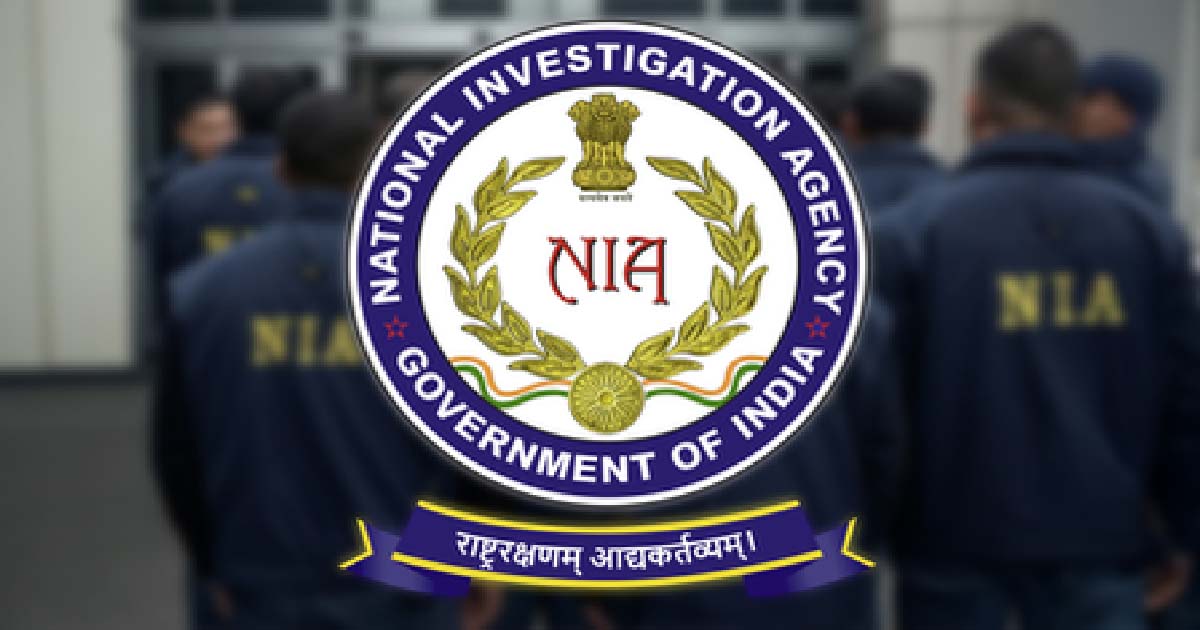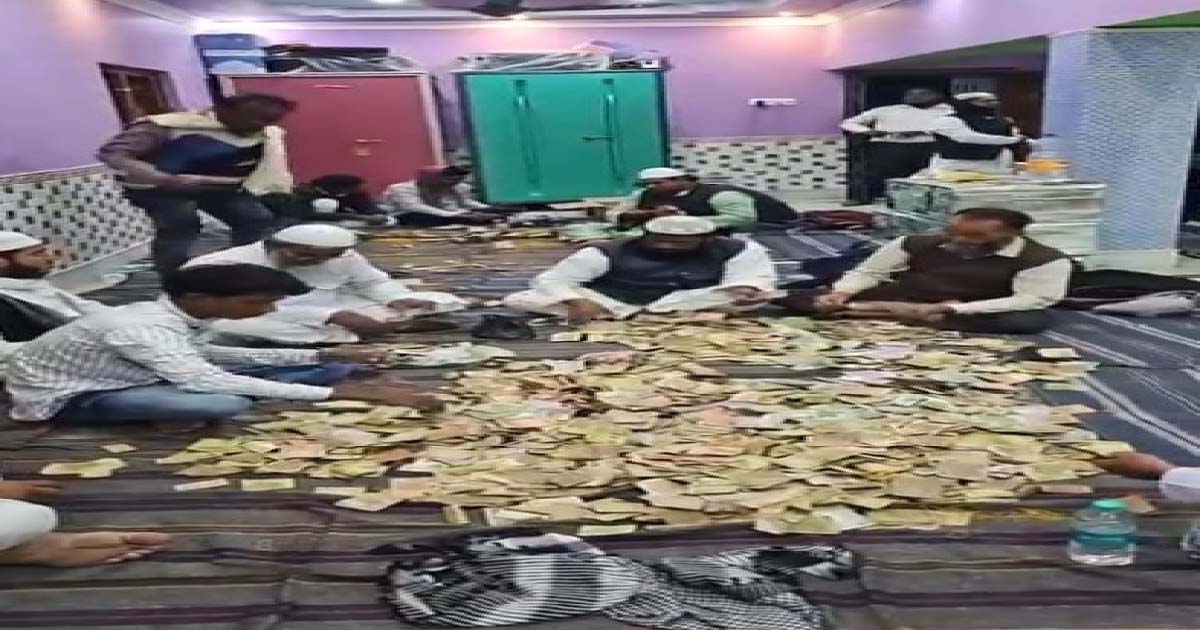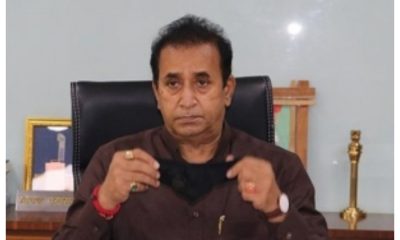Crime
Bombay High Court refuses to hear Anil Deshmukh’s plea against ED

The Bombay High Court on Thursday refused to hear a petition filed by former Maharashtra Home Minister Anil Deshmukh seeking to quash the Enforcement Directorate (ED) summons issued against him, among other reliefs.
When the matter first came up on Thursday, Justice Revati Mohite-Dere recused herself from hearing the plea without assigning any reason, saying: “Not before me.”
The plea was filed on Wednesday by Deshmukh seeking to quash the ED summons for recording his statement, setting up an SIT comprising officers from outside of Mumbai Zone, record his statement in electronic mode, attendance through an authorised agent, and other reliefs as directions.
The ED has been probing an alleged money-laundering case against Deshmukh since April following a CBI FIR arising out of the corruption allegations levelled by former Mumbai police chief Param Bir Singh in March.
Deshmukh has so far skipped five ED summons even as the agency raided his premises in Mumbai and Nagpur and also arrested two of the ex-minister’s associates.
Last month, the Supreme Court had declined to grant interim protection against arrest by the ED and asked Deshmukh to move an appropriate court.
Among other things, Deshmukh is charged with asking dismissed Mumbai Assistant Inspector Sachin Vaze to collect Rs 100 crore per month from city hoteliers, and an educational trust belonging to the Deshmukhs receiving illegal money worth Rs 4 crore.
Crime
Navi Mumbai: Real Estate Developer’s Gold Chain Worth ₹13 Lakh Stolen; 4 Servants Named In Police Case

Thane: Four persons allegedly entered the house of a 26-year-old real estate developer in Navi Mumbai while he was abroad and stole a gold chain valued at Rs 13 lakh, police said on Thursday.
Based on the victim’s complaint, the police have registered a case against his driver, bodyguard, house help and former driver, they said.
The man and his mother, residents of Kharghar in Navi Mumbai, went to Bali, Indonesia, on November 30 and returned on December 7.
After returning, he found his gold chain, weighing 109.7 gm and valued at Rs 13.2 lakh, missing from his drawer.
An analysis of the CCTV footage of the residence showed the presence of four suspects in his bedroom during his absence, an official from Kharghar police station said.
Based on his complaint, the police on Tuesday registered a case against the four suspects under section 306 (theft by clerk or servant of property in possession of master) of the Bharatiya Nyaya Sanhita and were probing it, he added.
Crime
Odisha explosives loot case: NIA files charge sheet, names 11 Maoists

New Delhi, Dec 11: The National Investigation Agency (NIA) on Thursday has chargesheeted 11 accused in a case involving the loot of around 4,000 kg of explosives by armed cadres of the CPI (Maoist) terror organisation during transportation to a stone quarry in Odisha’s Rourkela district.
According to a statement issued by the NIA, all 11 accused have been charged under various sections of the UA(P) Act, BNSS, Arms Act and the Explosive Substances Act. During the investigation, the agency found the accused to be actively involved in the criminal conspiracy, planning and execution of the theft of around 200 explosive packets, each containing 20 kg of explosives.
The explosives were being transported to Maoist strongholds in the Saranda Forest in Jharkhand when local police intercepted the vehicle carrying the consignment from the Itma Explosive Station to the Banko stone quarry on May 27. The vehicle, along with its driver, was forcibly seized by 10-15 armed Maoists and taken towards a stronghold of the organisation in the nearby jungle.
The explosives, along with Maoist uniforms and other materials, were seized during a combing operation on the Gandhamardhan Hill range on the Balangir-Bargarh district boundary. The search was conducted jointly by the Special Operation Group (a security force raised to combat Left-wing extremists in Odisha), the CRPF, the Jharkhand Jaguars, and the District Voluntary Force.
The NIA, which took over the case from the local police in June, found that the huge quantity of explosives had been looted for use against the government machinery, including police and security forces, through the commission of terror acts. The agency stated that the loot was part of a larger conspiracy by CPI (Maoist) to destabilise national security.
The 11 chargesheeted accused have been identified as: Jarja Munda alias Kulu Munda; Anmol alias Sushant alias Lalchand Hembram; Ramesh alias Pritam Manjhi alias Anal Da; Pintu Lohra alias Tigar; Laljit alias Lalu; Shiva Bodra alias Shibu; Amit Munda alias Sukhlal Munda; Ravi alias Biren Singh; Rajesh alias Mansid; Sohan alias Ranga Punem; and Aptan alias Chandra Mohan Hansd.
The NIA said its investigation into the case is continuing.
Crime
Humayun Kabir’s Trust for Babri Mosque garners Rs 3.50 crore donations so far

Kolkata, Dec 11: West Bengal Islamic Foundation of India, the trust formed for the proposed Babri Mosque at Beldanga in Murshidabad district of West Bengal, by the now-suspended Trinamool Congress leader Humayun Kabir, has received donations to the tune of Rs 3.50 crore.
The manual counting of currencies collected as cash donations filled in 11 trunks was completed on Wednesday night, and the total amount accumulated was Rs 87 lakh, confirmed a close confidant of Kabir.
At the same time, the online donations deposited at the designated bank account of the said trust, through the scanning of the QR code, have reached Rs 2.63 crore as of Wednesday night.
It was learnt that from Sunday afternoon until night, the money from a total of four boxes was counted. A sum of Rs 37,33,000 was collected in cash. On Monday afternoon, the counting of money resumed using machines.
The counting of the remaining seven boxes was completed by Tuesday.
The total amount of donations collected from these boxes reached Rs 38,34,000. In total, Rs 75,67,523 were counted from 11 boxes and one sack.
However, the donations did not stop coming in. More money received from various places was counted on Wednesday. That amount is also close to Rs 11 lakh. In other words, so far, approximately Rs 87 lakh have been collected in cash alone.
At the same time, Humayun Kabir also arranged to deposit money online, keeping a specific QR code. It is reported that Rs 2,62,00,000 have been deposited so far in the bank account specified as the trust of Babri Masjid.
Sources close to Humayun claim that the amount of donations will increase, as almost every day someone is helping to build a mosque. Those who are giving large sums of money, their names are kept secret for now.
Humayun’s expectation of donations has exceeded expectations, said sources. The trust authority wants to quickly transfer the cash from the box to the bank account.
It was broadcast live to maintain transparency in the process of counting money.
A separate house is also being arranged to keep this money. There will be all security arrangements, including CCTV cameras, to keep an eye on the cash.
A controversy erupted over Kabir’s decision to lay the foundation stone of a Babri Masjid styled mosque in Murshidabad district’s Beldanga.
On December 4, Trinamool Congress leadership suspended Kabir from the party for anti-party activities. Despite his suspension, Kabir went ahead with his programme on December 6 and laid the foundation stone for the mosque.
Humayun said that the construction of the Babri Masjid will start in the first week of February in Beldanga. The Quran will be recited by one lakh voices a day before the construction of the mosque begins.
Meanwhile, a Public Interest Litigation (PIL) was filed at the Calcutta High Court on Wednesday seeking a direction to stop the construction of Babri Masjid. The matter is likely to be heard next week.
-

 Crime3 years ago
Crime3 years agoClass 10 student jumps to death in Jaipur
-

 Maharashtra1 year ago
Maharashtra1 year agoMumbai Local Train Update: Central Railway’s New Timetable Comes Into Effect; Check Full List Of Revised Timings & Stations
-

 Maharashtra1 year ago
Maharashtra1 year agoMumbai To Go Toll-Free Tonight! Maharashtra Govt Announces Complete Toll Waiver For Light Motor Vehicles At All 5 Entry Points Of City
-

 Maharashtra1 year ago
Maharashtra1 year agoFalse photo of Imtiaz Jaleel’s rally, exposing the fooling conspiracy
-

 National News1 year ago
National News1 year agoMinistry of Railways rolls out Special Drive 4.0 with focus on digitisation, cleanliness, inclusiveness and grievance redressal
-

 Maharashtra1 year ago
Maharashtra1 year agoMaharashtra Elections 2024: Mumbai Metro & BEST Services Extended Till Midnight On Voting Day
-

 National News1 year ago
National News1 year agoJ&K: 4 Jawans Killed, 28 Injured After Bus Carrying BSF Personnel For Poll Duty Falls Into Gorge In Budgam; Terrifying Visuals Surface
-

 Crime1 year ago
Crime1 year agoBaba Siddique Murder: Mumbai Police Unable To Get Lawrence Bishnoi Custody Due To Home Ministry Order, Says Report


















